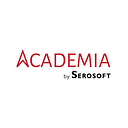Web3 Revolutionizes Learning: Decentralized Education for the Future
The integration of Web3 technology is reshaping various industries, and higher education is no exception. Web3, with its decentralized and user-centric approach, has the potential to revolutionize the way we learn and collaborate. In this post, we will explore how Web3 is taking education to the next level and what it means for the future of learning.
Decentralized Learning Platforms:
Web3 enables the creation of decentralized learning platforms powered by blockchain technology. These platforms provide secure, transparent, and tamper-proof systems for verifying academic credentials and ensuring the integrity of degrees, certifications, and other qualifications.
Tokenized Incentives for Learning:
Web3 introduces the concept of digital tokens and cryptocurrencies, which can be integrated into educational platforms. By rewarding students with tokens for active participation, achievements, and contributions, institutions can create a tokenized incentive system, motivating learners to engage more deeply in their studies.
Collaborative and Trustworthy Research:
Blockchain technology in Web3 ensures the integrity and traceability of research data. Academics can collaborate on research projects with confidence, knowing that their contributions are securely recorded, preventing data manipulation and fostering a more trustworthy research environment.
Smart Contracts for Education Agreements:
Smart contracts, self-executing agreements with predefined rules, can be utilized for various educational purposes, such as student-teacher agreements, funding arrangements, and course completion contracts. These contracts enhance transparency and automate administrative processes, reducing bureaucracy and ensuring fair dealings.
Community-Driven Education:
Web3 enables the creation of Decentralized Autonomous Organizations (DAOs) in the education sector. These community-driven entities allow stakeholders, including students, faculty, and administrators, to participate in decision-making processes, shaping the direction and policies of educational institutions collectively.
Global Access to Education:
With Web3, barriers to accessing education can be significantly lowered. Decentralized platforms can offer courses, resources, and expertise from around the world, providing learners with a diverse and global perspective. Additionally, microtransactions with cryptocurrencies enable affordable and accessible learning opportunities for individuals in underserved communities.
Conclusion:
Web3 technology holds immense promise for the future of education, offering innovative solutions that enhance transparency, collaboration, and accessibility. By embracing decentralized learning platforms, tokenized incentives, smart contracts, and community-driven initiatives, educational institutions can create a more inclusive, efficient, and empowering learning environment. As we continue to explore the possibilities of Web3, the education sector stands on the brink of a transformative era, where learners are at the center of a decentralized and democratized educational ecosystem.
Blog by Academia ERP: Academia ERP/SIS as a world-class Student Information System (SIS), stands at the forefront of innovation by continually aligning itself with the latest trends in the educational technology landscape. It is committed to adapting the principles and ideas of Web3, ensuring that it remains on the cutting edge of educational management systems.
